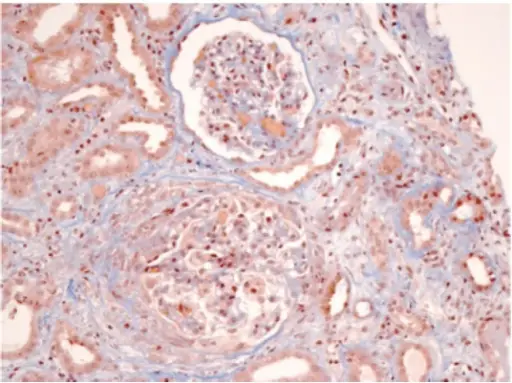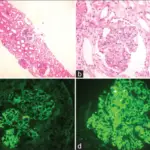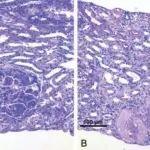Poststreptococcal glomerulonephritis is the disease of the glomeruli that arises after the infection of the group A streptococcal bacteria.
What is the Pathology of Poststreptococcal Glomerulonephritis?
The pathology of poststreptococcal glomerulonephritis is:
-Etiology: The cause of poststreptococcal glomerulonephritis is group A strep bacteria.
-Genes involved: Unknown.
-Pathogenesis: The sequence of events that lead to poststreptococcal glomerulonephritis is once the infection occurs, there is rapid inflammation of the glomeruli and deterioration of this function.
-Morphology: Not applicable.
-Histology: The histology associated with poststreptococcal glomerulonephritis shows increased mesangial cells, increased mesangial matrix, and segmental thickening of the bowman’s capsule.
How does Poststreptococcal Glomerulonephritis Present?
Patients with poststreptococcal glomerulonephritis typically are male present at the the age range of 3-7 years. The symptoms, features, and clinical findings associated with poststreptococcal glomerulonephritis include dark reddish brown urine, edema, oliguria, fatigue, malaise, proteinuria.
How is Poststreptococcal Glomerulonephritis Diagnosed?
Poststreptococcal glomerulonephritis is diagnosed history taking and physical examination, blood tests, urinalysis.
How is Poststreptococcal Glomerulonephritis Treated?
Poststreptococcal glomerulonephritis is treated mainly by management of the symptoms.
What is the Prognosis of Poststreptococcal Glomerulonephritis?
The prognosis of poststreptococcal glomerulonephritis is good with a 90% survival rate.



